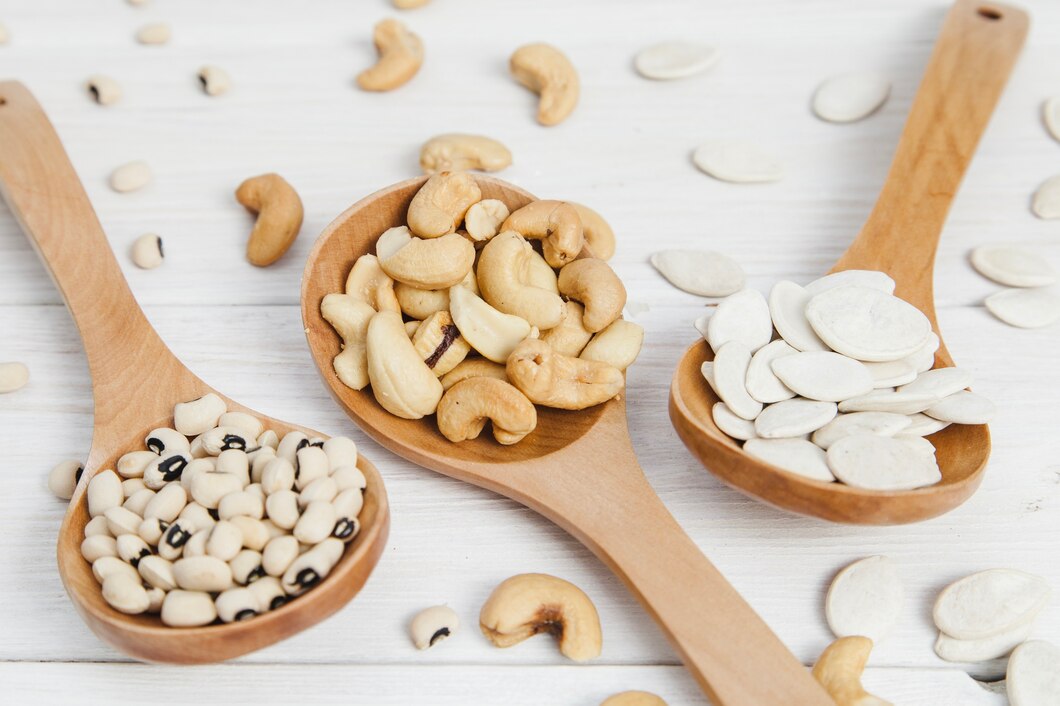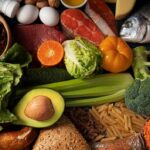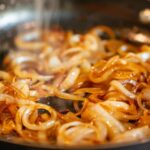While a vegan diet is often praised for its health benefits, not all plant-based foods are safe to consume in their raw or unprocessed forms. Some vegan-friendly foods contain natural toxins or harmful compounds that can lead to poisoning if not properly prepared. Here are 10 foods that can be poisonous in vegan diets and tips on how to enjoy them safely.
1. Raw Cashews
Raw cashews, especially the ones sold with their shells, contain urushiol, the same toxin found in poison ivy. Eating raw cashews can lead to an allergic reaction or poisoning. Always consume store-bought “raw” cashews, which are typically steamed to remove toxins.
2. Red Kidney Beans
Red kidney beans contain a natural toxin called lectin, specifically phytohaemagglutinin, which can cause severe nausea, vomiting, and diarrhea if consumed raw or undercooked. To avoid poisoning, soak the beans for at least five hours and boil them for a minimum of 10 minutes before eating.
3. Bitter Almonds
Bitter almonds contain amygdalin, which can convert into cyanide when digested. Eating just a handful of bitter almonds can cause cyanide poisoning, leading to dizziness, vomiting, and even death. Only sweet almonds, which are commonly available, should be eaten raw.
4. Raw Soybeans
Raw soybeans contain lectins and protease inhibitors, which can disrupt digestion and cause toxicity if consumed in large amounts. Always cook soybeans thoroughly before eating them, whether as edamame, tofu, or other forms of soy-based products.
5. Raw Bamboo Shoots
Bamboo shoots contain cyanogenic glycosides, compounds that can release cyanide when ingested. Eating raw bamboo shoots can lead to cyanide poisoning. They must be boiled for at least 20 minutes to remove the toxins before consumption.
6. Rhubarb Leaves
While rhubarb stalks are safe to eat and commonly used in desserts, the leaves contain oxalic acid and anthraquinone glycosides, which are highly toxic. Consuming rhubarb leaves can cause kidney failure and even death. Always discard the leaves and only consume the stalks.
7. Elderberries
Elderberries are known for their immune-boosting properties, but the raw berries, leaves, and stems contain cyanogenic glycosides. These compounds can cause nausea, vomiting, and diarrhea if consumed. To safely enjoy elderberries, cook them thoroughly before consumption.
8. Raw Alfalfa Sprouts
Raw alfalfa sprouts can harbor harmful bacteria like Salmonella, E. coli, and Listeria. These pathogens can cause food poisoning, particularly in individuals with weakened immune systems. To reduce the risk, consider cooking the sprouts or purchasing them from a reputable source.
9. Cassava (Manioc)
Cassava is a staple in many vegan diets, especially in African and South American cuisines. However, it contains cyanogenic glycosides, which can release cyanide if not prepared properly. Always peel, soak, and cook cassava thoroughly to eliminate the toxins.
10. Nutmeg
Nutmeg is a commonly used spice, but in large quantities, it contains a compound called myristicin, which can cause hallucinations, nausea, dizziness, and even seizures. Nutmeg poisoning can occur when consuming as little as two tablespoons. Use nutmeg sparingly as a seasoning.
How to Avoid Food Poisoning on a Vegan Diet:
- Cook beans and legumes thoroughly: Soaking and boiling beans can eliminate harmful toxins and make them safe to eat.
- Be cautious with raw or unprocessed nuts: Purchase pre-roasted or processed versions of nuts like cashews and almonds.
- Pay attention to preparation: Foods like cassava and bamboo shoots require specific preparation methods to neutralize their toxins.
- Choose your produce wisely: When eating raw fruits or vegetables, ensure they are sourced from trusted suppliers to minimize the risk of contamination.
While plant-based diets offer numerous health benefits, some vegan-friendly foods can pose a risk if not properly handled. By understanding which foods contain natural toxins and following the necessary precautions, vegans can enjoy a diverse and nutritious diet without compromising their health.








